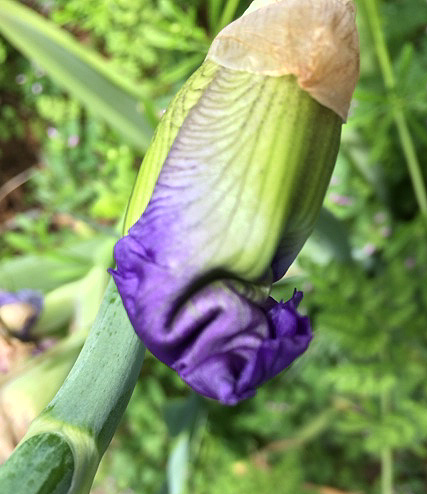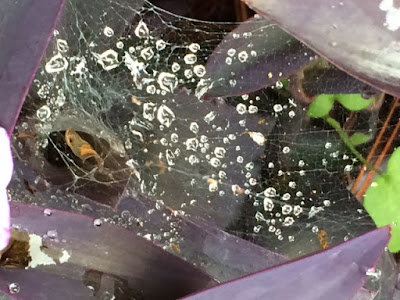There it
was--her picture. Yes, with all its greens and blues, its lines running up and
across, its attempt at something. It would be hung in the attics, she thought;
it would be destroyed. But what did that matter? she asked herself, taking up
her brush again. She looked at the steps; they were empty; she looked at her
canvas; it was blurred. With a sudden intensity, as if she saw it clear for a second,
she drew a line there, in the centre. It was done; it was finished. Yes, she
thought, laying down her brush in extreme fatigue, I have had my vision.
To
the Lighthouse
(211)
365 days
ago, I committed to posting a year of blog entries on Woolf and flowers. This is my 338th post. I will continue to post from time to time,
filling in days I missed or doubling up on days when I have a particularly good
anniversary to celebrate. Hope you’ve
enjoyed the ride.

















